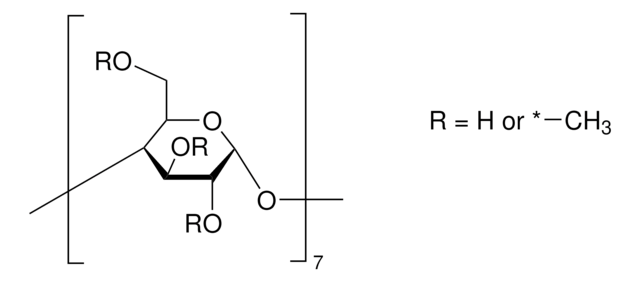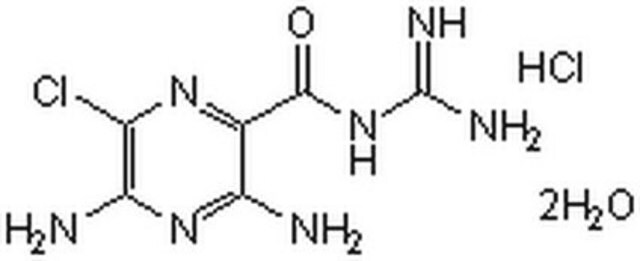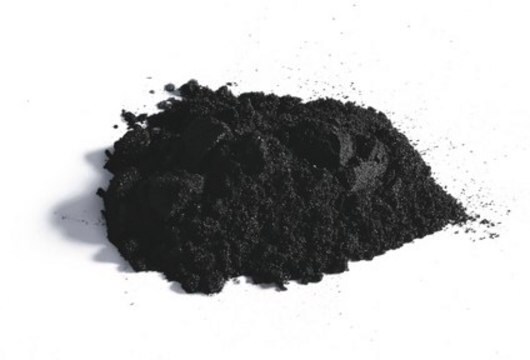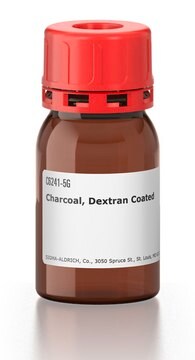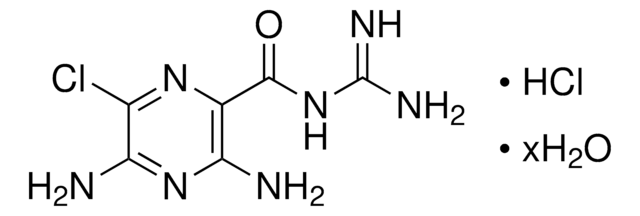C9157
Activated charcoal
suitable for cell culture, suitable for plant cell culture
Synonym(s):
Charcoal activated
Sign Into View Organizational & Contract Pricing
All Photos(2)
About This Item
Empirical Formula (Hill Notation):
C
CAS Number:
Molecular Weight:
12.01
EC Number:
MDL number:
UNSPSC Code:
11101522
PubChem Substance ID:
NACRES:
NA.21
Recommended Products
vapor pressure
<0.1 mmHg ( 20 °C)
Quality Level
description
acid-washed with hydrochloric acid
form
powder
autoignition temp.
842 °F
resistivity
1375 μΩ-cm, 20°C (graphite)
technique(s)
cell culture | mammalian: suitable
cell culture | plant: suitable
mp
3550 °C (lit.)
SMILES string
[C]
InChI
1S/C
InChI key
OKTJSMMVPCPJKN-UHFFFAOYSA-N
Looking for similar products? Visit Product Comparison Guide
General description
Activated charcoal is originally used as an absorbent to remove toxic substances from plants. The use of activated charcoal in culture media gives it a dark colour. It induces absorption of phenolic, cell lysis products, ethylene, methane and many other compounds that are known to be deleterious to the plant tissue. Along with this, activated charcoal also absorbs growth regulators and other media components. In orchid, carrot and tomato tissue culture, activated charcoal induces growth and differentiation.
Application
Activated charcoal has been used:
- in the pre-treatment of fetal calf serum, which was then used for protein content determination
- to study its effect on cell viability
- in a tissue culture medium and to study the availability of 2,4-dichlorophenoxyacetic acid in the same
Storage Class Code
11 - Combustible Solids
WGK
nwg
Flash Point(F)
Not applicable
Flash Point(C)
Not applicable
Choose from one of the most recent versions:
Already Own This Product?
Find documentation for the products that you have recently purchased in the Document Library.
Customers Also Viewed
Plant Tissue Culture: Practices and New Experimental Protocols, 41-41 (2007)
Modeling available 2, 4-dichlorophenoxyacetic acid in a tissue culture medium containing activated carbon
Toering A and Pullman G
Plant Cell, Tissue and Organ Culture, 82(2), 179-188 (2005)
Plant Cell and Tissue Culture, 505-505 (2013)
G Williamson et al.
Carcinogenesis, 17(11), 2385-2387 (1996-11-01)
It has recently been shown by Hollman et al. (Am. J. Clin. Nutr., 62, 1276-1282) that flavonoid glycosides are preferentially absorbed from dietary onions compared to the flavonoid aglycone. In the light of this, we have compared the bioactivities of
Optimization of a sampling system for recovery and detection of airborne porcine reproductive and respiratory syndrome virus and swine influenza virus
Hermann JR, et al.
Applied and Environmental Microbiology, 72(7), 4811-4818 (2006)
Our team of scientists has experience in all areas of research including Life Science, Material Science, Chemical Synthesis, Chromatography, Analytical and many others.
Contact Technical Service
